At least 129 children have been killed in the Philippines’ four-year “war on drugs,” most by police or allied assailants, but they might only represent a fraction of the toll, advocate groups said yesterday.
Minors have been directly targeted, punished as proxies, or victims of mistaken identity or “collateral damage,” they said in a report, How Could They Do This To My Child?
The World Organisation Against Torture (OMCT) and the Children’s Legal Rights and Development Center, a Philippines-based group, urged the Geneva-based UN Human Rights Council to launch an independent commission of inquiry into extrajudicial killings and other crimes at its three-week session, which opens today
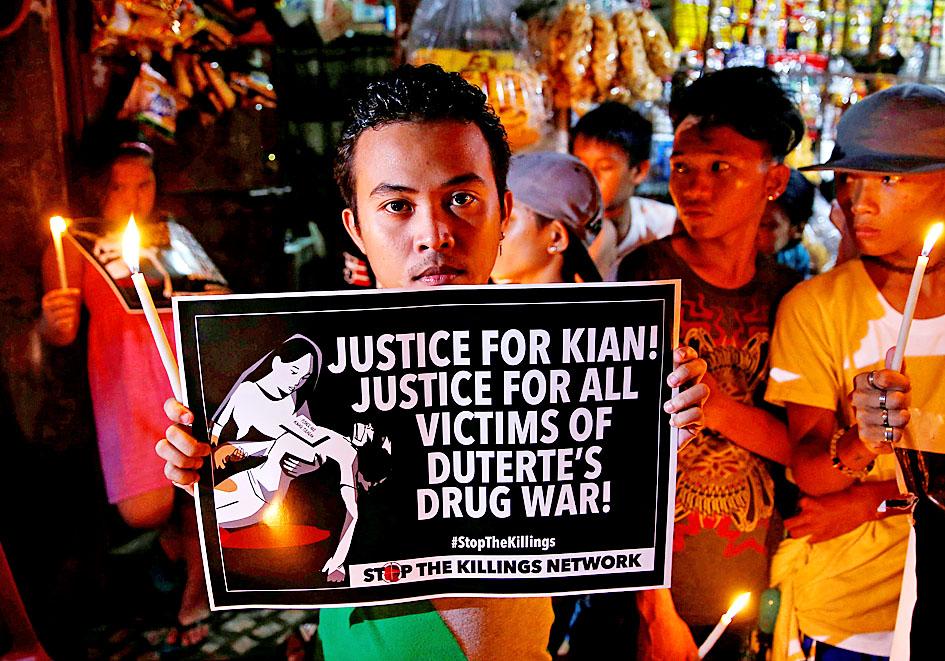
Photo: Reuters
The figures, which include seven child murders this year, are “the tip of the iceberg because it is only those cases that we were able to document and verify, there may be many more in the country,” OMCT secretary-general Gerald Staberock told a news conference. “We are calling on the Human Rights Council to give a clear investigative mandate on the ground to collect the evidence and to ensure accountability.”
“Far from being only ‘collateral damage,’ as callously stated by [Philippine] President Rodrigo Duterte, these have often been deliberate killings,” How Could They Do This To My Child? states.
A Philippine presidential spokesman did not immediately respond to a request for comment.
Investigators found that 38.5 percent of the documented child killings between July 2016 and December last year were carried out by policemen, while 61.5 percent were by unknown assailants, “some of them with direct links to the police.”
The youngest victim was a 20-month-old girl.
The report was based on information directly collected from the locations where the children were killed, including interviews with local authorities, families and witnesses, and the examination of official documents, OMCT said.
Perpetrators enjoy impunity, with only one case, involving the killing of 17-year-old Manila student Kian delos Santos, recorded on video in 2017, leading to a conviction, the report said.
It is estimated that the total number of extrajudicial killings in the framework of the anti-drug campaign might run as high as 27,000, OMCT said.
In addition, children violating quarantines during the COVID-19 pandemic have been killed, said Rose Trajano of the Philippine Alliance of Human Rights Advocates.
“We have documented at least 15 extrajudicial killings during the time of COVID and we know that is not all,” she said.
Additional reporting by staff writer
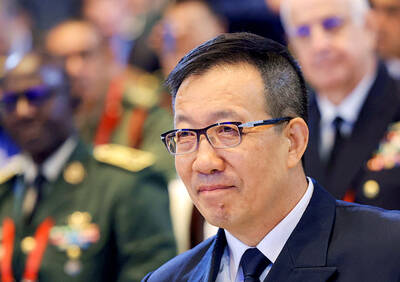
BEIJING FORUM: ‘So-called freedom of navigation advocated by certain countries outside the region challenges the norms of international relations,’ the minister said Chinese Minister of National Defense Dong Jun (董軍) yesterday denounced “hegemonic logic and acts of bullying” during remarks at a Beijing forum that were full of thinly veiled references to the US. Organizers said that about 1,800 representatives from 100 countries, including political, military and academic leaders, were in Beijing for the Xiangshan Forum. The three-day event comes as China presents itself as a mediator of fraught global issues including the wars in Ukraine and Gaza. Addressing attendees at the opening ceremony, Dong warned of “new threats and challenges” now facing world peace. “While the themes of the times — peace and development —
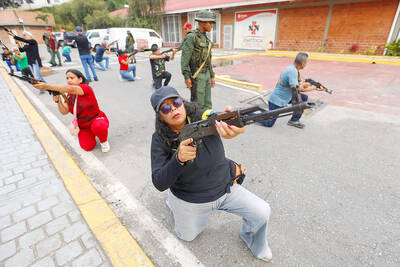
Venezuela on Saturday organized a day of military training for civilians in response to the US deployment in the Caribbean, and amid new threats from US President Donald Trump. About a month ago, Washington deployed warships to international waters off Venezuela’s coast, backed by F-35 jets sent to Puerto Rico in what it calls an anti-drug and anti-terrorism operation. Venezuelan Minister of Defense Vladimir Padrino Lopez has accused Washington of waging “undeclared war” in the Caribbean, after US strikes killed over a dozen alleged drug traffickers off his country’s coast. Caracas also accused the US of seeking regime change, and
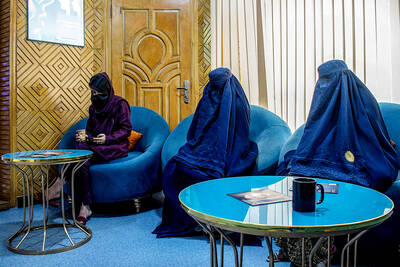
Decked out with fake crystal chandeliers and velvet sofas, cosmetic surgery clinics in Afghanistan’s capital are a world away from the austerity of Taliban rule, where Botox, lip filler and hair transplants reign. Despite the Taliban authorities’ strict theocratic rule, and prevailing conservatism and poverty in Afghanistan, the 20 or so clinics in Kabul have flourished since the end of decades of war in the country. Foreign doctors, especially from Turkey, travel to Kabul to train Afghans, who equally undertake internships in Istanbul, while equipment is imported from Asia or Europe. In the waiting rooms, the clientele is often well-off and includes men
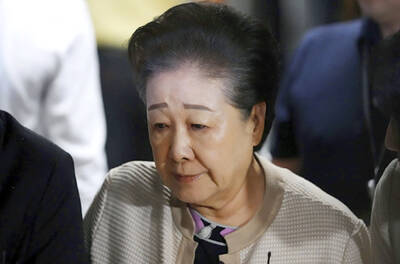
BRIBERY ALLEGATIONS: A prosecutor said they considered the risk of Hak-ja Han tampering with evidence to be very high, which led them to seek the warrant South Korean prosecutors yesterday requested an arrest warrant for the leader of the Unification Church, Hak-ja Han, on allegations of bribery linked to the country’s former first lady and incitement to destroy evidence. The move came a day after the 82-year-old was questioned over her alleged role in bribing former first lady Kim Keon-hee and a lawmaker. Founded in 1954 by her late husband, Sun Myung Moon, the Unification Church has long been the subject of controversy and criticism, with its teachings centered on Moon’s role as the “second coming” and its mass weddings. Followers are derisively referred to as “Moonies.” However, the church’s